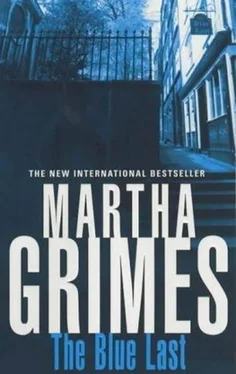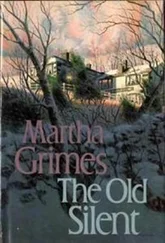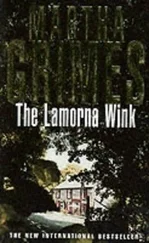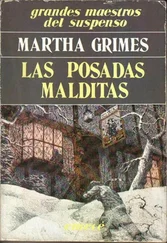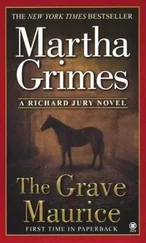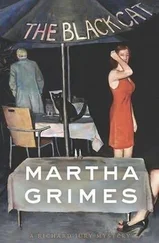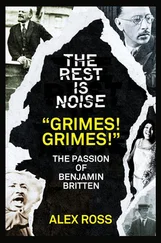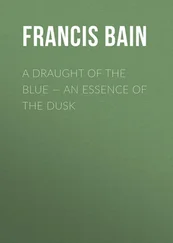Martha Grimes - The Blue Last
Здесь есть возможность читать онлайн «Martha Grimes - The Blue Last» весь текст электронной книги совершенно бесплатно (целиком полную версию без сокращений). В некоторых случаях можно слушать аудио, скачать через торрент в формате fb2 и присутствует краткое содержание. Жанр: Детектив, на английском языке. Описание произведения, (предисловие) а так же отзывы посетителей доступны на портале библиотеки ЛибКат.
- Название:The Blue Last
- Автор:
- Жанр:
- Год:неизвестен
- ISBN:нет данных
- Рейтинг книги:3 / 5. Голосов: 1
-
Избранное:Добавить в избранное
- Отзывы:
-
Ваша оценка:
- 60
- 1
- 2
- 3
- 4
- 5
The Blue Last: краткое содержание, описание и аннотация
Предлагаем к чтению аннотацию, описание, краткое содержание или предисловие (зависит от того, что написал сам автор книги «The Blue Last»). Если вы не нашли необходимую информацию о книге — напишите в комментариях, мы постараемся отыскать её.
The Blue Last — читать онлайн бесплатно полную книгу (весь текст) целиком
Ниже представлен текст книги, разбитый по страницам. Система сохранения места последней прочитанной страницы, позволяет с удобством читать онлайн бесплатно книгу «The Blue Last», без необходимости каждый раз заново искать на чём Вы остановились. Поставьте закладку, и сможете в любой момент перейти на страницу, на которой закончили чтение.
Интервал:
Закладка:
“This is ridiculous. I don’t need to-” She started to turn away.
Jury turned her back. “Oh, yes, you do need to. What you’ll need to do is leave this place. Leave the village. You won’t say anything-not anything -about these two paintings. Under no circumstances try to contact Mr. Trueblood. You’ll write Mr. Plant here a letter relinquishing all interest in the paintings. Then you have forty-eight hours to get out of town.”
“But what about Mr. Jasperson? I can’t just leave.”
“What you tell Mr. Jasperson is your own business. I’m sure you can think of something plausible.” He paused. “You’re getting off very lightly, Miss Eccleston. Thank your lucky stars that for some people, art really means more than money.”
She looked absolutely white.
Jury smiled. “Gather up your painting, Mr. Plant.”
Melrose didn’t bother with the wrapping paper.
“Merry Christmas,” said Jury.
“Good lord,” said Melrose, as they backed the car out of the parking place.
“What could you do to her?”
“Nothing. But she doesn’t know that. Of course, Jasperson could have her up on any number of charges.”
Melrose was carrying his painting with him in the front seat. He leaned it back and looked at it. “The thing is, we still don’t know.”
“Whether it’s genuine?”
“I don’t see how it could be. How could something like this have been missed for all of these years by experts in the field. I mean, how could it have just sat there in some little church-and no Italian Renaissance nut twigged it?” Melrose paused. “But as Tomas Prada-one of the experts-pointed out, what could these panels have been copied from, given the original paintings are missing?”
“Hmm. That’s a point, certainly. Can’t you live with it this way? ”
“Not knowing?”
“Yes.”
“That’s what Prada asked Trueblood.”
“And what did Trueblood answer?”
Melrose smiled. “He said, ‘I could; I’d just rather not.’ ”
Jury laughed. “Sounds like him.”
Forty-nine
“ Your broccoli, now,” began Mr. Steptoe, who might have been Irish or might have been English. “Your broccoli, now, the best of your broccoli’s dark, so dark it’s purple. That has all the nutrients in it twice over the lighter green sort. And any that’s yellow, just you pass it up. Yellow means it’s finished, no nutrients at all.” He ate the stub of broccoli on which he had just passed judgment.
Mr. Steptoe, the new greengrocer in Long Piddleton, sat between Agatha and Diane. They were one woman short, so that meant two men would be cracking elbows. Melrose had seated Agatha between himself and Mr. Steptoe; this had immediately resulted in a whispered exchange, Agatha insisting that she preferred not to sit next to a grocer who would have no conversation at all. “But I’ll be on your left hand, dear aunt, and you know I’ll have all sorts of conversation.” This irritated her even more, as Melrose knew it would.
But as it turned out, Mr. Steptoe had endless conversation, though it was all about vegetables. Mr. Steptoe had done beetroot, asparagus, parsnips and potatoes, had gone right around the dishes brought in by Ruthven and the slightly emaciated young lad Ruthven had dug up to help serve. Mr. Steptoe had pronounced each of these vegetables of excellent quality, which prompted Melrose to remark that they should be, for weren’t they purchased at Steptoe’s? Mr. Steptoe had thought that marvelously funny, and had excused himself from bragging by saying he honestly hadn’t had that in mind at all.
“It’s just that the right kind of vegetable, properly cooked, does indeed make the difference between a poor meal and a good one.”
“Remember,” said Trueblood, turning to Melrose, “the excellent flageolet beans at the Villa San Michele?”
Mr. Steptoe made a little noise. “Ah, flageolet! The best are in France, of course.”
Melrose thought his guests might as well be at Le Manoir aux Quatre Saisons, listening to Raymond Blanc.
Mr. Steptoe continued: “Yes, I had a very tasty dish of flageolet cooked with apricots in Paris.”
“The staple food of the Hunzas,” said Diane.
All eyes turned to Diane upon hearing this runic remark.
“Apricots,” she said. “Their staple food.”
“Diane,” said Melrose, “who in hell are the Hunzas?”
Diane waved the question away with ruby-painted nails. “Some Indian or other. Have we finished our dinner? Am I sitting in the smoking section? I’m way down at the end here, absolutely ostracized.”
“You’ve got me, Diane,” said Jury, taking her lighter to light her cigarette.
“Oh, don’t I wish. ”
“Funny,”said Melrose, “I certainly remember clearly the Villa San Michele-the magnificent vaulted ceilings, the faded frescoes on the walls of the lobby, the subdued service in the dining room and that knock-out view of Florence from the balcony. But I don’t seem to recall the flageolet.”
“Trust Melrose,” said Agatha, “to sap all of the sentiment from any experience.” She went back to prodding a flower of broccoli around her plate.
“Not any experience, Agatha. Not the Masaccio experience, certainly. It had got to where I felt I knew him. Right, Marshall? You, me and Masaccio: We three, we happy three, we band of brothers.”
Thoughtfully, Diane exhaled a plume of smoke. “That has a familiar ring. And I agree with Melrose.” Having not been on the trip, Diane could take any side she wanted. “You know, some writer said Florence was absolutely overflowing. It was Henry… Henry… Oh, you know that writer who was so enamored of Italy.”
“Henry James?” said Vivian.
“That’s the one, yes.” Diane exhaled another artistic-looking stream of smoke. “You know, Superintendent, you’d enjoy Florence. They’ve all sorts of crime, I mean interesting crimes, society murders, that sort of thing. Who was that count? The Conti di Rabilant, I think, was murdered there. And you’d look marvelous in the uniform of the carabinieri. Quite smart.” Diane smiled at him in her sultry way. “What are you working on at the moment?”
“A shooting.”
Diane was interested. “Tell us about it, this shooting. We might be able to help; we might come up with one or two good ideas. Why you’ve seen-” Diane spread her black velvet-garbed arm “-how we are!”
“Indeed he has,” said Melrose.
Trueblood made a sound between a hiccup and a laugh. “Dream on, Diane.”
“But you never know how the details will strike someone unfamiliar with a case. Don’t you agree, Superintendent? Looking at something too long makes it all so familiar you can think it’s always been that way.”
“What are you talking about?” asked Trueblood.
“I thought it rather well put,” said Jury. “Only, look, it’s Christmas. Can’t we take a holiday from crime?”
Ruthven and his young helper had cleared away the dinner plates, and Ruthven reappeared with the Christmas pudding, which he placed before Melrose. “Shall I do it, sir?”
“No. This is the most fun I have all year. Give me the lighter.”
Ruthven handed over the sort of lighter one uses for cigars. The butler then wrapped a napkin around a bottle of Champagne and circled the table, pouring.
Melrose flicked the lighter and held it to the base of the pudding. Flames shot up amidst murmurs of pleasure. Everyone clapped. Melrose stood up and waited for Ruthven to fill the glasses, then he raised his. “A toast! To ‘we few, we happy few, we band of brothers.’ ” He looked around the table. “And sisters.”
As everyone touched glasses, Diane said, “There it is again. I know I’ve heard that somewhere.”
Читать дальшеИнтервал:
Закладка:
Похожие книги на «The Blue Last»
Представляем Вашему вниманию похожие книги на «The Blue Last» списком для выбора. Мы отобрали схожую по названию и смыслу литературу в надежде предоставить читателям больше вариантов отыскать новые, интересные, ещё непрочитанные произведения.
Обсуждение, отзывы о книге «The Blue Last» и просто собственные мнения читателей. Оставьте ваши комментарии, напишите, что Вы думаете о произведении, его смысле или главных героях. Укажите что конкретно понравилось, а что нет, и почему Вы так считаете.
